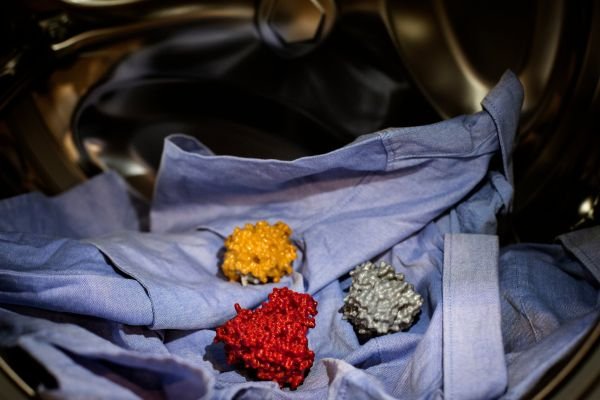In the quest for a more environmentally friendly detergent, two scientists at the company, Novozymes, regularly trudge through the mud, hunting for oyster mushrooms that protrude from a fallen beech or bracken fungi that feast on tough plant fibers.
 They are studying the enzymes in mushrooms that speed up chemical reactions or natural processes like decay.
They are studying the enzymes in mushrooms that speed up chemical reactions or natural processes like decay.
Their work is helping the company develop enzymes for laundry and dishwasher detergents that would require less water, or that would work just as effectively at lower temperatures. The energy savings could be significant. Washing machines, for instance, account for over 6 percent of household electricity use in the European Union.
 Novozymes and its rivals have developed a catalog of enzymes over the years, supplying them to consumer goods giants like Unilever and Procter & Gamble. In 2016, Novozymes generated about $2.2 billion in revenue and provided enzymes for detergents including Tide, Ariel and Seventh Generation.
Novozymes and its rivals have developed a catalog of enzymes over the years, supplying them to consumer goods giants like Unilever and Procter & Gamble. In 2016, Novozymes generated about $2.2 billion in revenue and provided enzymes for detergents including Tide, Ariel and Seventh Generation.
Modern detergents contain as many as eight different enzymes.
A tenth of a teaspoon of enzymes in a typical European laundry load cuts by half the amount of soap from petrochemicals or palm oil in a detergent.
Enzymes are also well suited to helping cut energy consumption. They are often found in relatively cool environments, like forests and oceans. As a result of that low natural temperature, they do not require the heat and pressure typically used in washing machines and other laundry processes.
In 2009, Novozymes scientists teamed up with Procter & Gamble to develop an enzyme that could be used in liquid detergents for cold-water washes.
The result: a crucial ingredient in detergents like Tide Cold Water.
“This is biotechnology on a very large scale, which can save so much water, and so much energy.”
Reference- The NewYork Times, Novozymes website, Mushroom Appreciation website






